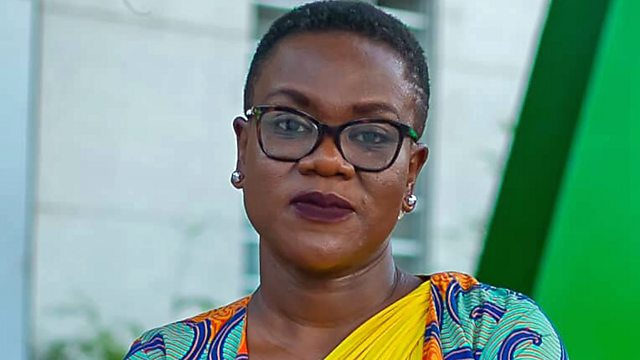“Hello friends”.
“Hello Angela” came the chorus, like a responsorial chant at a Catholic mass.
“I am here to show-and-tell you about my pet cat”, she says, holding up a 5×7 colour photo of a rather pleasant looking cat. “This is Chelsea, she is 2 years old and is a Bengal cat. She eats tuna and rice 3 times in a week, and she likes milk too. She likes to snuggle up to me when I am watching TV, but my parents don’t like this as she sheds a lot of hair in our couch. She can do a few tricks when I tell her to; she can lie on her back when I snap my fingers 3 times…”
Fauzia A. Sameed- winner of The Young Debaters 2020
The whole class was engrossed, and I wondered why; my 8-year-old niece, Angela was telling her classmates about her pet, which I see anytime I visit her in London, UK. It was a day in her school called Show-And-Tell and they were encouraged to come with their family to observe. I joined as I was curious about her day; she was excited about it and had infected me with same.
I noticed after her presentation, she had to take questions from her classmates about her presentation – does she have kittens? how many teeth does Chelsea have? did you name her after the famous football club? – the questions were coming thick and fast, yet one after the other, Angela answered each one, even admitting when she didn’t know the answer.
I found the Show-and-Tell session very engaging and then it dawned on me; this explains why we all have admired and described the average Western child as ‘articulate and well-spoken’. They start off very young: what am I on about, you may be wondering?
The art of speaking in public; it is a skill that many of us in Ghana haven’t honed properly because we are not exposed properly to it early on in life. Nor do we practice it quite often, in my opinion. Back in Journalism school, I was taught that the word ‘public’ could also mean the specific group of people one is or will be speaking to. For instance, Angela’s public at school was 8-year-olds in a classroom. This is useful in guiding Angela on how to prepare her presentation – or any other person who must speak to a public.
Has it occurred to you that even when speaking to your parents, that can be labelled as public speaking too? In public speaking, you must have a public (an audience) and a message to deliver to them. Let’s, say, you wanted to convince your parents why they must get you the latest phone. You can’t just walk up to them and say, “Hey Mom and Dad, I need a new phone so can you buy me one?”. Or you thought that should be it? Well, as a parent myself, you’d need to do more than that; give me a compelling reason why you absolutely need that phone. There are many things vying for my attention (and money) so just asking for a phone without justifying why won’t cut it.
One of the key aspects of public speaking is the ability to persuade your audience of what you may be asking of or telling them.

In your world today though, public speaking includes what you post on your social media handles. Matter of fact, this is where you probably do the most of your public speaking. Your thousands of friends and or followers are your public who are definitely not a homogenous group- you may have your friends and family on there, no? Or you’re one of those who keep separate handles for family so they can’t tell what you’re saying or doing? Lol!
What you need to be extra cautious about on social media are your comments- either responses or your own posts. Your choice of words which could come across as intolerant, misogynistic, racist, discriminatory, or downright disrespectful, will forever remain on the internet (they say, the internet never forgets!). So, whilst you may think you’re having ‘harmless’ fun with some of such comments, know that they will come back to bite you when, say, you’re looking to attend college abroad…or worse, you’re standing for public office and are being vetted. Phew!!
Whether online or in person, whether one person or a thousand, your speech (oral or written) is received by a public- know them, learn them, understand them before you speak to them.
>>>The writer is a passionate educator who makes learning fun for children under 18 through co-curricular programmes. Through her charity organisation, Young Educators Foundation (YEF) in Ghana, the programmes portfolios have expanded to include literacy programmes in local languages as well as public speaking programmes for the youth.
Based on her work in education and with children, Eugenia is the recipient of many nomination and awards such as a presidential award for the contribution to education over the past decade in 2018. In 2019, she was named as one of the 74 individuals in Those who Inspire Ghana, a global programme that identifies nationals whose experiences are worth sharing. Eugenia believes that children are not the ‘future’, but rather the ‘present’ and so the need to invest in their total development. She is a regular contributor on radio and television shows as well as various public fora on this and related topics.










